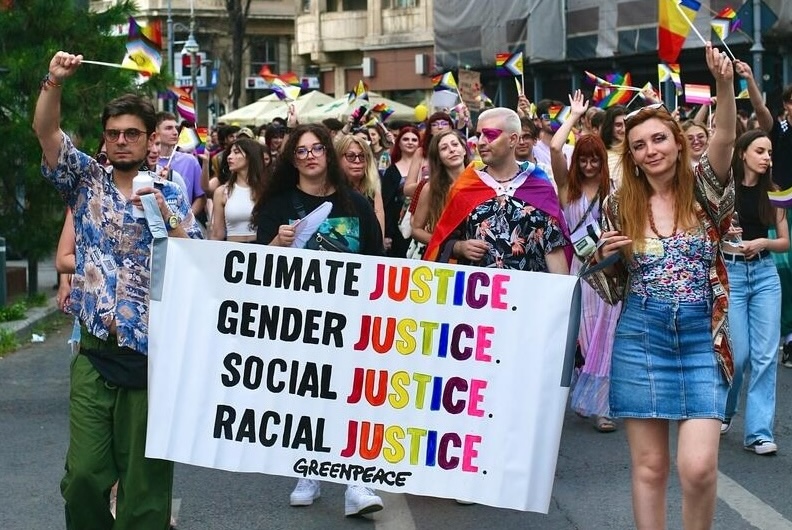
Climate change and its impacts are gendered. Cyclone Gorky, which hit Bangladesh in 1991, caused around 140,000 deaths, of which 90% were women. Cyclone Nargis in Myanmar in 2008 killed twice as many women than men in the worst affected places. During the 2022 heatwaves in Europe, 56% more women died than men.
UN Women and UNICEF reports that the level of economic, political and cultural power held by women and gender minorities [1] before a disaster directly impacts their suffering both during and in the aftermath.
As governments, organisations and corporations from around the world celebrate Women's History Month this March, the reality is that in practice many women and gender minorities are still not treated equally to men and face more barriers to accessing positions of power and decision making power, through which they have the opportunity to bring change with their perspectives, lived experience and skills.
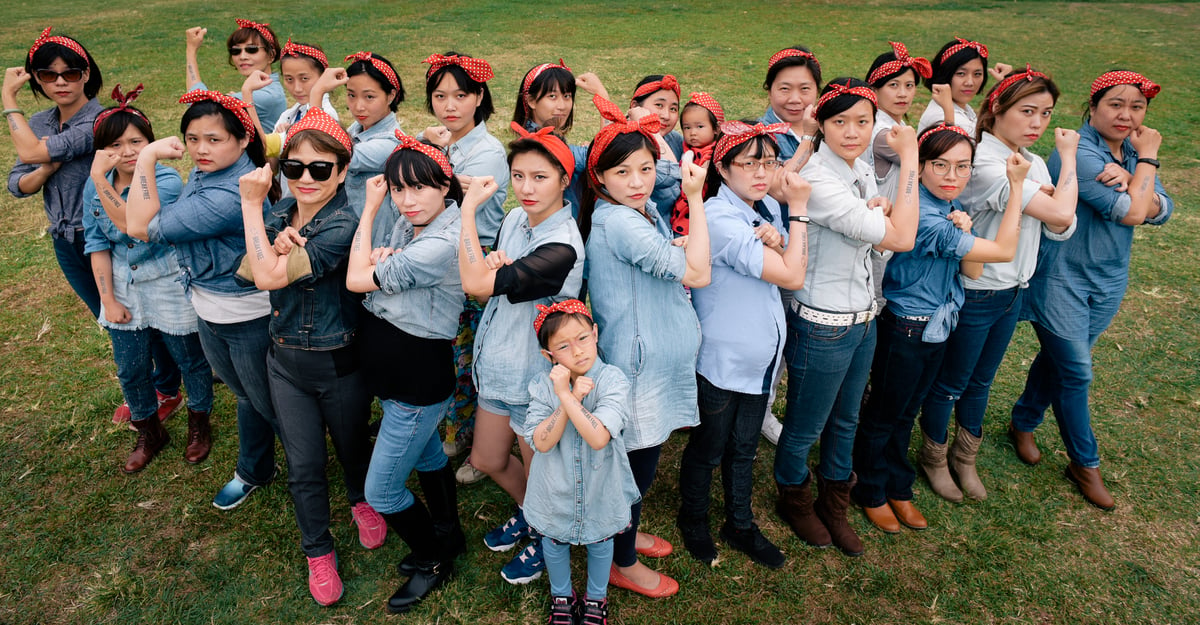
According to the UN, there were only 26 countries where women served as Heads of State and/or Government as of January 2024. At the current rate, gender equality in the highest positions of power would not be reached for another 130 years. In addition, women globally held only 11% of ministerial positions responsible for energy, natural resource fuels and mining as of January 2023.
The level of representation is even lower for gender minorities. In the United States, where 2 million people identify as transgender and 1.2 million as non-binary, there are no known representatives in the Congress that identify as trans or belonging to a gender minority and globally there have been only a handful of trans or non-binary ministers.
Gendered and intersectional impacts of climate change
Women are at a higher risk of being impacted by climate change due to poverty, cultural norms, and the gendered roles and responsibilities. Even in the richest nations, women are at a higher risk of energy poverty, which can have serious health and wellbeing consequences.
The situation is more dire for gender minorities because of systemic discrimination and barriers such exclusion, isolation, and unreliable work, in addition to discrimination and violence they may face during disasters, which can affect them more severely than both cisgender men and women.
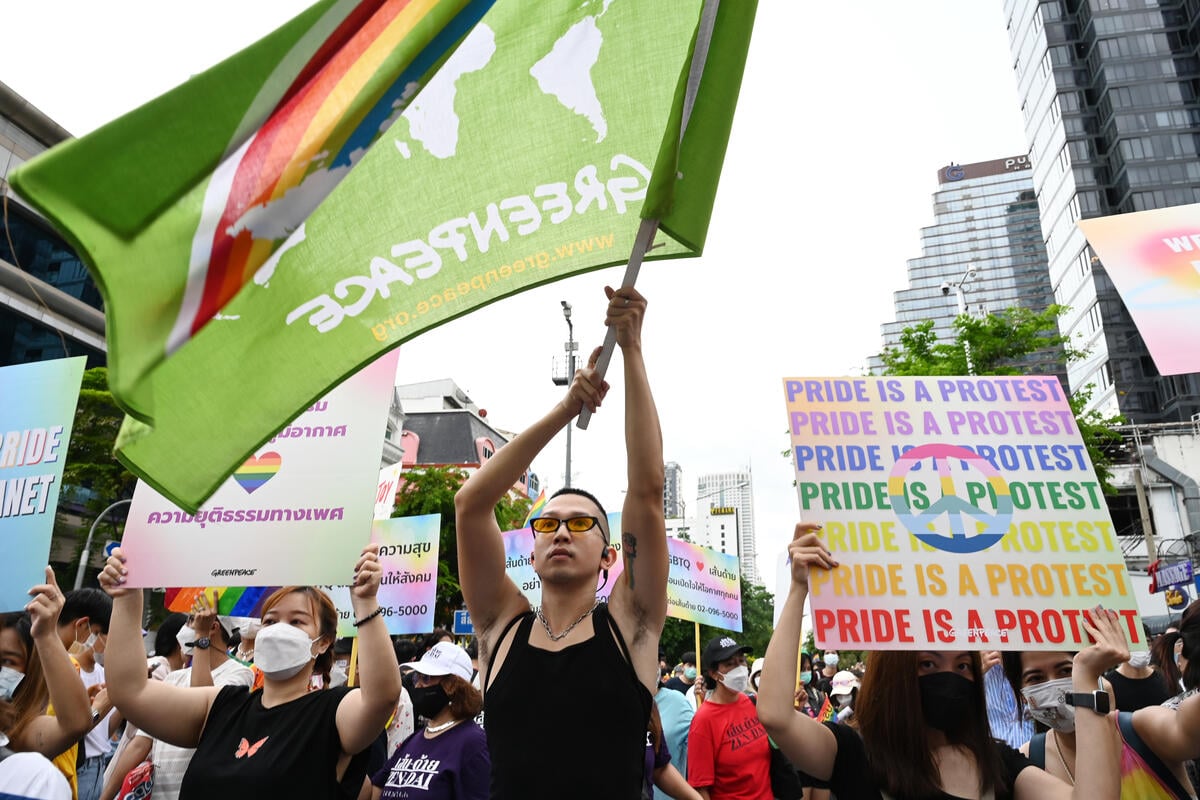
While it is clear that climate change impacts women and gender minorities disproportionately, these impacts are not felt equally across the intersection of identities due to varying social and economic circumstances.
A woman from the Global North may not feel the impacts of climate change as much as a woman from the Global South. Just as a woman who belongs to an ethnic majority may not face the additional challenges faced by a woman belonging to an ethnic minority. This requires intersectional and inclusive climate action across all levels of governance to address the various challenges that are experienced by different groups of women and gender minorities.
The many benefits of gender diversity and equality
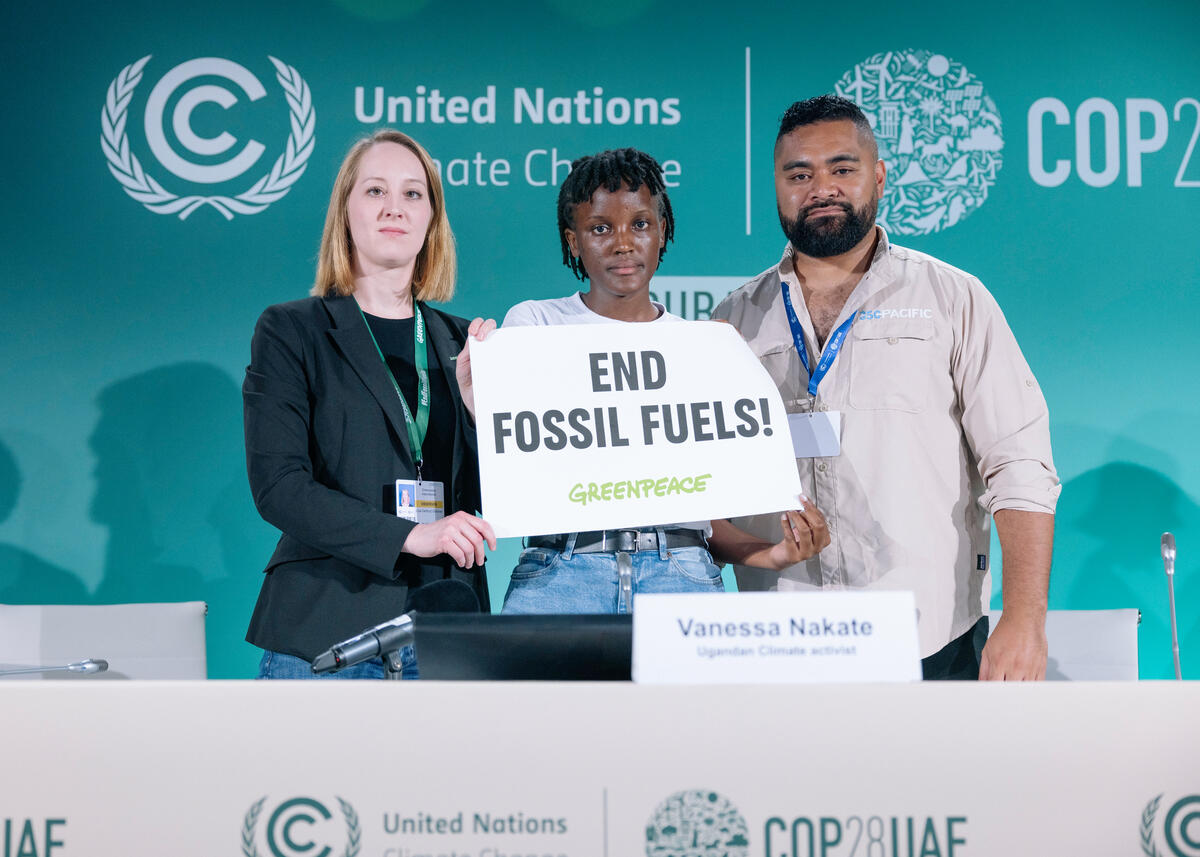
The benefits of gender diversity and equality in various contexts have been reported by many scientific studies. For example, studies have shown that having gender diversity is more likely to improve a firm's environmental performance and women are more likely to support environmental legislation than men. Women also favour climate actions that benefit future generations, including investing in it, more than men. Gender minorities, on the other hand, have more awareness and concern for climate change than both genders.
This is not to further burden women and gender minorities by making them "environmental champions" to fix the problems created by a heteropatriarchal system. It is to highlight that they have unique perspectives, experiences, skills and knowledge that are invaluable in the fight against climate change.
For example, the Solar Mamas Program, which provides training for rural women in solar technology installation and maintenance around the world have not only empowered women and benefited their communities as well as the climate, but it also overturned power structures in the most patriarchal societies.
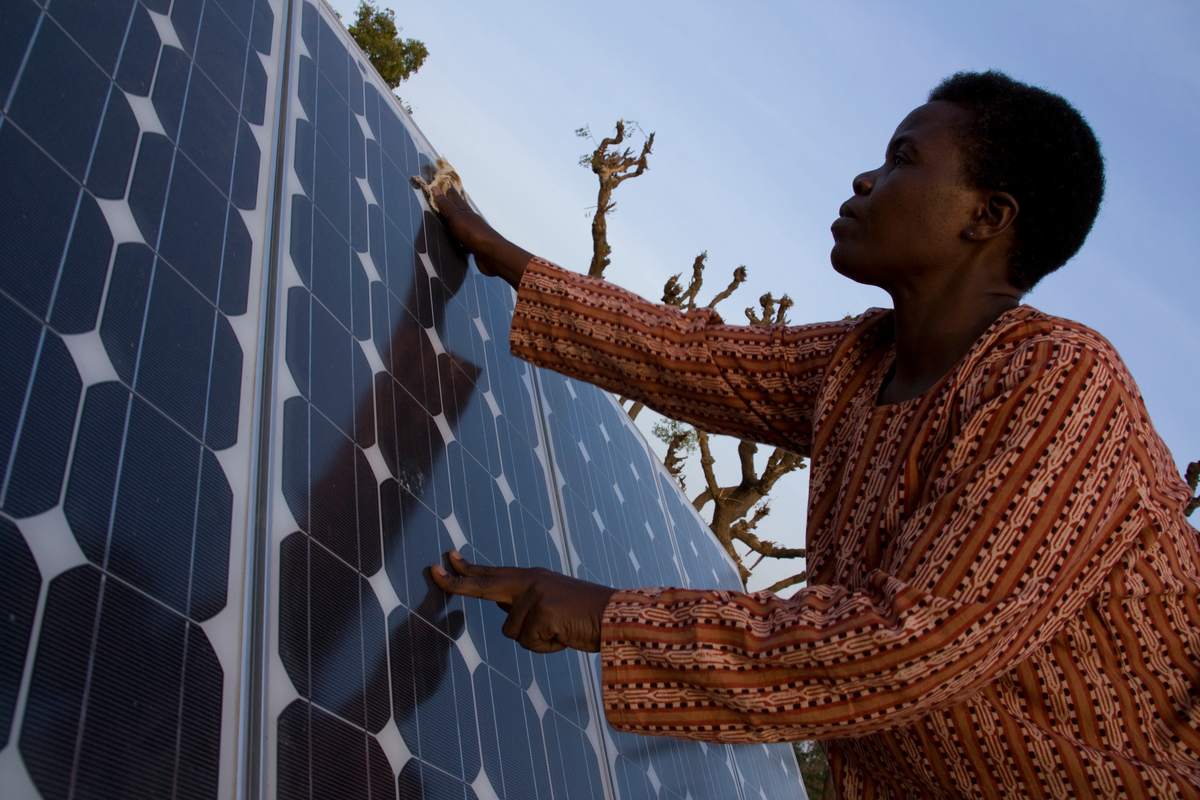
Gender minorities have unique resources, skills and knowledge to deal with disasters, such as strong social ties that facilitate raising emergency funds, collecting and distributing relief, and organising evacuation centres, among others that can benefit the whole community.
A researcher who observed the Kyoto Protocol negotiations in 1997 reported that the few women who had leading roles were able to influence the climate negotiations positively due to their specific networking and interpersonal skills, as well as their long term thinking and planning. Compared to their male colleagues, they were observed to be more proactive in involving delegations from developing countries and helping their integration into the decision-making process.
So where are the women and gender minorities in climate discussions?
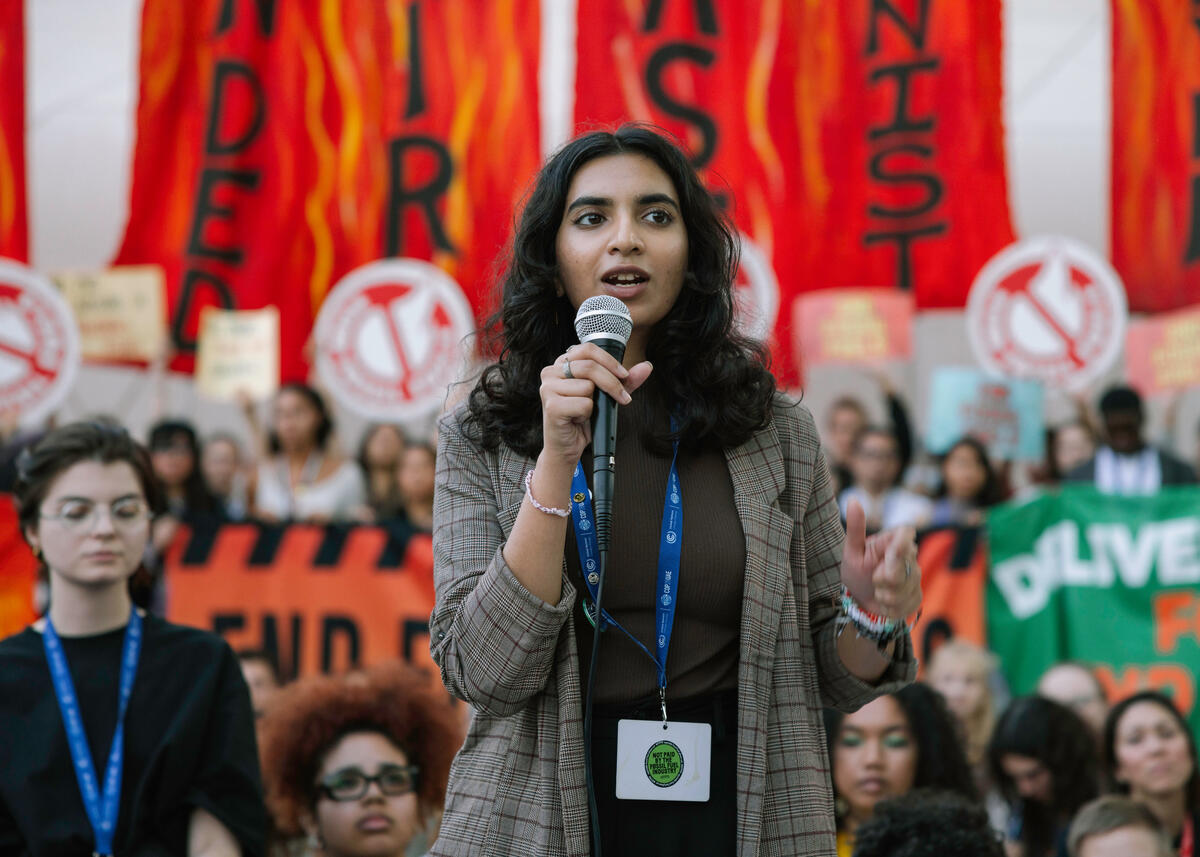
One might think that much has changed since 1997, but women are still underrepresented in climate decision-making discussions. At last year's COP28, only 35% of the participants were women, the same percentage as ten years ago, and 77% of the delegations had more men than women.
A report from UNFCCC on COP 27, where just 29% of heads and deputy heads of delegations were women, shows that women were more involved in administrative positions rather than technical ones and that men were overrepresented in decision-making positions and had more speaking time. There are no official figures on the representation of gender minorities in COP.
Gender diversity, equality and mainstreaming play a crucial role to achieve ambitious and fair climate action. We simply do not have time to wait to achieve equality and successfully address the pressing issues like climate change without the valuable skills, knowledge and perspectives that women and gender minorities can bring. It is time that we push truly for equality and inclusivity, not only for the benefit of women and gender minorities, but also for men and our planet!
Dr. Mehmet Börühan Bulut is an Energy Analyst with Greenpeace International. He wrote this piece in allyship with women and gender minorities: "I believe that together we can change the heteropatriarchal power structures and systems that not only negatively impact women and gender minorities but also harm many men. There cannot be climate justice without gender justice."
Notes:
[1] The term "gender minorities" here covers anyone who does not identify as cisgender while acknowledging that some transgender people may prefer to identify as woman or man instead of trans man or transwoman.
Read more on the relationship between gender, human rights and the climate crisis.






